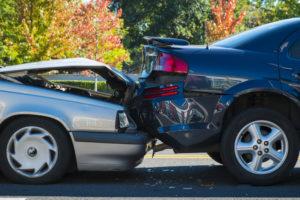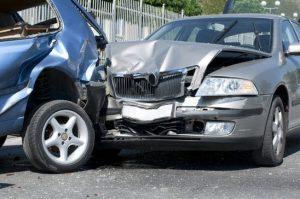
Many pedestrians get struck by cars because the drivers are distracted when wearing headphones. Drivers can easily argue that their eyes are on the road and that wearing earphones doesn’t distract them. But is it illegal to wear earphones while driving?
Car accident fatalities caused by distracted driving continue to rise. If you’re injured in an accident because the other driver was wearing headphones, you have a legal right to sue them and get compensated. At Morris Bart law firm, we can help you file a car accident claim and develop the strongest case to ensure you get maximum compensation for your injuries, economic damages, and pain and suffering.
Is Wearing Headphones While Driving Illegal?
There’s no standard answer to whether driving while wearing earphones is illegal because every state has its own laws. In some states, driving with earphones is perfectly fine, but in others, it’s illegal. Some states have laws that fall somewhere in between—driving with headphones is illegal, but there are exceptions.
For instance, it’s legal to drive while using headsets in Alabama, Arkansas, and Mississippi. On the other hand, the practice is illegal in Louisiana. However, many states that prohibit wearing earphones while driving have exceptions that exempt various groups and circumstances from the law:
- Emergency personnel, such as law enforcement, firefighters, and ambulance drivers.
- Any driver wearing a hearing aid or an instrument designed to improve human hearing
- Any motorcyclist using headsets installed in their helmet, which don’t have direct contact with the ear to enable users to hear surrounding sounds
- Drivers wearing a single-ear listening device, such as a Bluetooth
Whether you’re traveling to another state or your work involves driving across state borders, it would be best to understand the traffic laws before getting behind the wheel with your headphones in both ears.
For a free legal consultation, call 800-537-8185
The Dangers of Wearing Earphones While Driving
Although you might be driving in a state that allows driving with headphones, that doesn’t mean you should. Listening to music through your headphones suppresses your sense of hearing, making it harder to hear the surrounding sounds, such as emergency sirens, other motorists honking, alert sounds at a railway crossing, and crosswalk alarms. You could cause an accident that severely harms you and other motorists.
The American Automobile Association (AAA) discovered that wearing earphones intensifies cognition distraction levels and sensory deprivation. That’s why distraction caused by using electronic devices—such as headsets—is deemed as “inattentional blindness.” Most traffic laws in many states are yet to be reviewed to accommodate the emerging technologies, leaving many drivers clueless on how to proceed as far as driving with headphones is concerned.
Our car accident attorneys understand the laws pertaining to driving with headphones, whether in Alabama, Louisiana, Mississippi, or Arkansas. They can investigate your case and file a car accident lawsuit on your behalf. Their experience in litigating such cases makes them a reliable resource, especially when proving the other driver’s negligence.
Possible Charges for Causing a Car Accident Because of Headphones
Legal repercussions for driving while wearing headphones vary, depending on state laws. For instance, in Louisiana—where wearing earphones while operating an automobile is illegal—a driver who has caused an accident because they were distracted by a song/podcast they were listening to can be charged for reckless driving.
In states like Alabama or Mississippi, where headphones aren’t entirely illegal, a person wearing headphones can be charged with negligent driving—a lesser charge than reckless driving. Distracted driving because of listening to audio puts other road users in danger, and that can lead to a negligent driving charge.
If you’re an accident victim and believe it was the other motorist’s use of headphones that caused the accident, working with one of our professional car accident lawyers ensures you file a lawsuit in time. More importantly, we will ensure that the negligent party is held accountable for their negligent or reckless actions.
Legal Consequences of Distracted Driving
No matter the court ruling or negotiation outcomes, causing an accident due to distracted driving has several lasting repercussions, including:
Additional Points in Driving License
Every accident one causes due to negligent or reckless driving adds points to their driving license. If you accumulate a certain number of points within a specific period, your state’s DMV department may suspend your license for up to 12 months/one year.
Fines and Penalties
Besides the fines and penalties that a negligent driver pays to the state, they must also pay a compensatory amount to the victim for their medical bills and property damage. The court can also impose punitive fees to hinder the blameful party from wearing earphones while driving in the future.
Increased Auto Insurance Premiums
Suppose you’re the one who caused an accident; in that case, your insurance company will cover the compensation fees, but it will hike the rate of insurance you pay. They typically consider a client’s claims history when underwriting car coverage. If you’ve been involved in an accident, you can expect them to offer you insurance with increased monthly premiums.
Click to contact our personal injury lawyers today
Pure Comparative Fault vs. Modified Comparative Fault in Car Accident Lawsuits
Suppose you’re hit because of another driver’s recklessness or negligence, but the court determines that you also contributed to the accident. In that case, the compensation you may receive varies based on state negligence and fault laws.
Some states recognize the “pure comparative fault” rule. Following this rule, the court allows you to collect damages suffered in the accident, regardless of whether you are 99% at fault. Nonetheless, the settlement amount you receive is reduced by the percentage of fault you contributed to the incident.
States that follow the “modified comparative fault” rule have a 50% or 51% bar rule. In states that adhere to the former, a party can’t recover any damages if they are 50% (or more) at fault. In states following the 51% bar rule, a claimant can’t recover a settlement fee if they are 51% at fault.
Alabama is a fault state, this means the person who caused the accident is responsible for compensating the injured party for their damages.
Hire Morris Bart Car Accident Attorneys to Get Your Rightful Compensation
Whether you live in a state where wearing headphones while driving is legal or not, you can file a car accident claim if a negligent driver causes you to suffer bodily injuries or property damage. At Morris Bart, we are committed to helping vulnerable accident victims hold the at-fault party accountable. Contact us today, and get the legal support you need to recover your damages.
Questions?Call 800-537-8185
to find a Morris Bart office near you.





